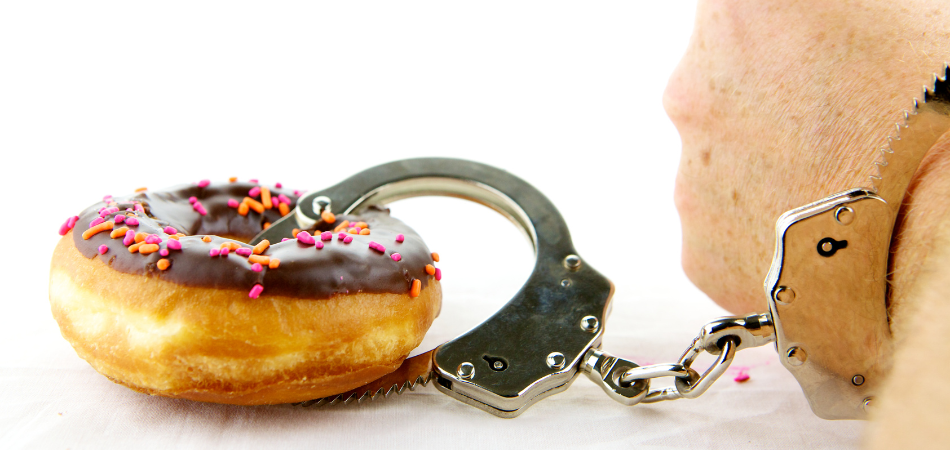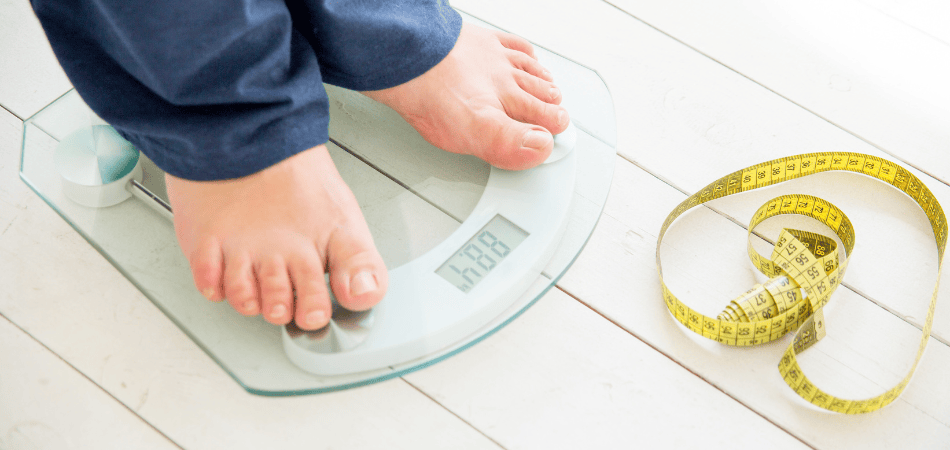
Written by:

Medically Reviewed by:
Last Updated:
February 14th, 2025
Food addiction
If you are struggling with an uncontrollable urge to eat or you feel helpless around food, you may be suffering from food addiction. This is a real and dangerous condition that affects many people across the UK but doesn’t get as much attention as other, better-known addictions. Food addiction can cause real harm to both an individual and their loved ones and so professional help is often needed. If you are addicted to food, know that you are not alone. Liberty House provides comprehensive food addiction rehab that can help you overcome this terrible condition and move forward with your life.

What is food addiction?
Food addiction is a type of process or behavioural addiction that causes you to compulsively eat whether you are hungry or not. When you are addicted to food, some of the most common symptoms include:
- Having no control over your urge to eat
- Regularly binge eating
- Eating far more than is healthy
- Eating beyond the point where you feel full
- Hiding how much you are eating from loved ones
One study found that the annual cost to the UK economy of treating obesity is due to reach over £37 billion in 2025 with a significant portion of these costs being the result of food addiction and binge eating disorders. In fact, despite being less well-known than other eating disorders like Bulimia and Anorexia Nervosa, your chances of having a food addiction are higher than those other two conditions combined.
How do people become addicted to food?
Addiction has both physical and psychological aspects which is a major reason that it is such a difficult condition to live with and treat.
Physically, eating sugary, salty and fatty foods increases the levels of dopamine in the brain. Dopamine is a neurotransmitter that is associated with the brain’s pleasure and reward system. In other words, when you eat foods that you like, it feels good. However, over time your body builds up a tolerance to those dopamine spikes which means that you need to keep eating more and more of the addictive foods to get the same feeling. This can lead to overeating and, eventually, food addiction.
Psychologically, certain personality types are more likely to develop food addictions. People who suffer from conditions like anxiety and depression often self-medicate with food as eating can provide temporary relief from the negative feelings associated with those conditions. Unfortunately, this only leads to a vicious cycle in which the person becomes even more depressed and anxious and turns to food to cope. Other psychological factors that can contribute to developing a food addiction include low self-esteem, body dysmorphia and a history of trauma.
What makes food addiction a uniquely tricky condition to treat is that, unlike other addictions, you cannot stop eating food entirely. For example, for someone addicted to heroin, successful recovery means that they never take the drug ever again. This isn’t possible with food addiction. Instead, food addiction rehab looks to help you develop a healthy relationship with food so that you are able to control your urges.
The negative impact of food addiction
Food addiction can have a profound impact on every area of your life, from your physical health and mental health to your career, relationships and finances.
The physical impact of food addiction:
- Obesity and weight gain
- Increased risk of diabetes
- Increased blood pressure
- Heart disease
- Increased risk of heart attack and stroke
- High blood pressure
- Heart disease
- Increased risk of stroke
The impact of food addiction on mental health:
- Depression
- Embarrassment about physical appearance
- Low confidence and self-esteem
- Feelings of shame, guilt and hopelessness
- Feeling isolated from loved ones
- Suicidal thoughts
The impact of food addiction on other aspects of your life
- Relationships with loved ones: Food addiction can place a huge strain on relationships and you may start to distance yourself from the people who care about you the most. You may also become irritable and lash out at those closest to you when they try to talk to you about your problem.
- Work and school: It can be difficult to focus on work or studies when you’re dealing with food addiction. This is because you’re likely to be preoccupied with thoughts about food and your next meal. You may also find it hard to concentrate because of the physical effects of food addiction, such as fatigue.
- Money troubles: The cost of buying large quantities of food, as well as any associated medical bills to do with the health effects of food addiction, can quickly start to add up. Food addiction can also lead to financial issues if it begins to interfere with your ability to work.
- Social issues: Many people who develop food addiction begin to neglect their social life as all their energy and focus go towards obtaining and eating food. You may start to miss important events and gatherings, and your social circle may gradually become smaller as a result.
Do I need food addiction help?
Recognising that you are addicted to food can be difficult as you may just think you enjoy eating or that you are in control. To get a better idea of whether you have a food addiction, here are some questions to ask yourself:
- Do I eat even when I’m not hungry?
- Do I think about food all the time?
- Do I feel guilty or ashamed after eating?
- Do food cravings keep me up at night?
- Do I eat in secret or lie to my family about what I am eating?
- Do I feel out of control around food?
If your answer was yes to two or more of any of these questions, professional help for food addiction may be necessary. At Liberty House, we offer a food rehab programme that could assist you in conquering your addiction and allow you to develop healthy eating habits again.
The truth about food addiction
There are many myths and misconceptions about food addiction which make it scary for some people to reach out for help. They may be embarrassed or worried about being teased for their condition. To help dispel some misunderstandings, here are some common myths about food addiction and the reality behind them:
Myth: “You’re not addicted to food. You’re just greedy…”
…Truth: Food addiction is a real and serious condition that has nothing to do with greed. People with food addiction have no more control over their eating than an alcoholic does over alcohol. Being addicted to food means that you are physically and psychologically unable to stop eating even when you want to.
Myth: “You can’t have a food addiction as you’re not overweight…”
…Truth: Everyone is different and there are people who suffer from food addiction who appear to have a healthy weight and no issue with overeating. However, just because someone is not outwardly overweight doesn’t mean that the other negative effects of food addiction are not impacting their lives.
Myth: “You can just stop eating if you want to…”
…Truth: If only it were that easy. The misconception that addiction is a choice has been levelled at those addicted to drugs and alcohol for years. Like them, food addiction is not a choice; it is the result of a complex interaction of psychological and physical factors. If anybody who says that food addiction is a choice was able to spend a day in the shoes of someone addicted to food, they would find out just how hard it can be.
What food addiction help is available at Liberty House?
The food addiction treatment programme at Liberty House is comprised of two stages: rehab and aftercare.
Food rehab
Food addiction rehab is the process of overcoming your addiction by learning how to recognise its underlying causes and triggers and then developing healthy coping mechanisms to deal with them. Rehab treatment is most effective at an inpatient food rehab centre like Liberty House because it removes you from your everyday environment and gives you the chance to focus on your recovery without distractions.
During your time in food addiction rehab, you will receive a range of different treatments and therapies to help you address every aspect of your food addiction, including:
- Individual therapy
- Group therapy
- Dialectical Behaviour Therapy (DBT)
- Cognitive Behavioural Therapy (CBT)
- Family therapy
- Nutritional education
- Individual meal and exercise plans
- Meditation
- Yoga therapy
Aftercare
At Liberty House, we are committed to seeing you succeed long-term so we offer an extensive and supportive aftercare programme. Once you leave food rehab and return home, you will do weekly group therapy sessions which will provide you with continued support and guidance as you readjust to everyday life. You will also join our Alumni Network which has dedicated messaging groups and holds special events where you can share your experiences with others on the same journey and continue to build a positive support network.
What to do next
The sooner you seek food addiction help, the sooner you can start rebuilding your life. If you or somebody close to you may be struggling with food addiction, get in touch with Liberty House today.






